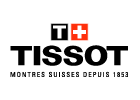Quantum AI Seriös: Case Studies of Fraudulent Clones and How to Avoid Them
As the field of Quantum AI continues to advance, there has been a rise in fraudulent clones claiming to offer similar services. These fraudulent clones can not only deceive users, but also tarnish the reputation of legitimate Quantum AI companies. In this article, we will explore some case studies of fraudulent clones and provide tips on how to avoid falling victim to them.
Case Study 1: Quantum AI Corp vs Quantum AI GmbH
In this case study, Quantum AI Corp, a well-established Quantum AI company, discovered a cloned website named Quantum AI GmbH that claimed to offer identical services. Upon further investigation, it was revealed that Quantum AI GmbH was a fraudulent clone attempting to deceive users into signing up for their services. Quantum AI Corp took legal action against Quantum AI GmbH and successfully shut down the fraudulent website.
Case Study 2: Quantum AI Systems vs Quantum AI Solutions
In this case study, Quantum quantum ai avis AI Systems, a reputable Quantum AI company, noticed a new player in the market named Quantum AI Solutions. Quantum AI Solutions utilized similar branding and marketing strategies as Quantum AI Systems, leading users to believe they were affiliated. However, Quantum AI Systems quickly identified Quantum AI Solutions as a fraudulent clone and warned their users to steer clear of the imposter.
How to Avoid Fraudulent Clones
When it comes to Quantum AI, it is essential to be vigilant and cautious to avoid falling victim to fraudulent clones. Here are some tips to help you distinguish between legitimate Quantum AI companies and fraudulent clones:
1. Research the Company: Before engaging with a Quantum AI company, conduct thorough research to verify their legitimacy. Check for reviews, testimonials, and any past legal actions against the company.
2. Verify Contact Information: Legitimate Quantum AI companies will provide accurate contact information, including a physical address and phone number. If the contact information seems suspicious or difficult to verify, proceed with caution.
3. Look for Red Flags: Be wary of Quantum AI companies that promise unrealistic results or use high-pressure sales tactics. Legitimate companies will focus on the technology and benefits of Quantum AI, rather than making grandiose claims.
4. Seek Recommendations: Reach out to industry professionals or trusted sources for recommendations on reputable Quantum AI companies. Word-of-mouth referrals can often lead you to legitimate providers.
5. Trust Your Instincts: If something feels off or too good to be true, trust your instincts and proceed with caution. It is better to be safe than sorry when it comes to choosing a Quantum AI provider.
In conclusion, the rise of fraudulent clones in the Quantum AI industry highlights the importance of due diligence and caution when selecting a provider. By following the tips outlined in this article and staying informed, you can protect yourself from falling victim to deceptive practices. Remember, a reputable Quantum AI company will prioritize transparency, innovation, and genuine service to help you achieve your goals in the field of Quantum AI.


















